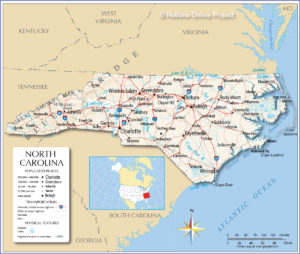EXECUTIVE ORDER
– – – – – – –
REVOCATION OF EXECUTIVE ORDERS 13574, 13590, 13622, AND 13645 WITH RESPECT TO IRAN, AMENDMENT OF EXECUTIVE ORDER 13628 WITH RESPECT TO IRAN, AND PROVISION OF IMPLEMENTATION AUTHORITIES FOR ASPECTS OF CERTAIN STATUTORY SANCTIONS OUTSIDE THE SCOPE OF U.S. COMMITMENTS UNDER THE JOINT COMPREHENSIVE PLAN OF ACTION OF JULY 14, 2015
By the authority vested in me as President by the Constitution and the laws of the United States of America, including the International Emergency Economic Powers Act (50 U.S.C. 1701 et seq.) (IEEPA), the National Emergencies Act (50 U.S.C. 1601 et seq.) (NEA), the Iran Sanctions Act of 1996 (Public Law 104-172) (50 U.S.C. 1701 note), the Comprehensive Iran Sanctions, Accountability, and Divestment Act of 2010 (Public Law 111-195) (22 U.S.C. 8501 et seq.), the Iran Threat Reduction and Syria Human Rights Act of 2012 (Public Law 112-158), the Iran Freedom and Counter-Proliferation Act of 2012 (subtitle D of title XII of Public Law 112-239) (22 U.S.C. 8801 et seq.) (IFCA), section 212(f) of the Immigration and Nationality Act of 1952 (8 U.S.C. 1182(f)), and section 301 of title 3, United States Code,
I, BARACK OBAMA, President of the United States of America, have determined that Iran’s implementation of the nuclear related measures specified in sections 15.1-15.11 of Annex V of the Joint Comprehensive Plan of Action of July 14, 2015 (JCPOA) between the P5+1 (China, France, Germany, the Russian Federation, the United Kingdom, and the United States), the European Union, and Iran, as verified by the International Atomic Energy Agency, marks a fundamental shift in circumstances with respect to Iran’s nuclear program. In order to give effect to the United States commitments with respect to sanctions described in section 4 of Annex II and section 17.4 of Annex V of the JCPOA, I am revoking Executive Orders 13574 of May 23, 2011, 13590 of November 20, 2011, 13622 of July 30, 2012, and 13645 of June 3, 2013, and amending Executive Order 13628 of October 9, 2012, by revoking sections 5 through 7 and section 15. In addition, in section 3 of this order, I am taking steps with respect to the national emergency declared in Executive Order 12957 of March 15, 1995, to provide implementation authorities for aspects of certain statutory sanctions that are outside the scope of the U.S. commitment to lift nuclear-related sanctions under the JCPOA.
This action is not intended to, and does not, limit the applicability of waiver determinations or any renewals thereof issued by the Secretary of State, or licenses issued by the Secretary of the Treasury, to give effect to sanctions commitments described in sections 17.1-17.3 and 17.5 of Annex V of the JCPOA, or otherwise affect the national emergency declared in Executive Order 12957, which shall remain in place, or any Executive Order issued in furtherance of that national emergency other than Executive Orders 13574, 13590, 13622, 13628, and 13645.
I hereby order:
Section 1. Revocation of Executive Orders. The following Executive Orders are revoked:
(a) Executive Order 13574 of May 23, 2011 (Authorizing the Implementation of Certain Sanctions Set Forth in the Iran Sanctions Act of 1996, as Amended);
(b) Executive Order 13590 of November 20, 2011 (Authorizing the Imposition of Certain Sanctions With Respect to the Provision of Goods, Services, Technology, or Support for Iran’s Energy and Petrochemical Sectors);
(c) Executive Order 13622 of July 30, 2012 (Authorizing Additional Sanctions With Respect to Iran); and
(d) Executive Order 13645 of June 3, 2013 (Authorizing the Implementation of Certain Sanctions Set Forth in the Iran Freedom and Counter-Proliferation Act of 2012 and Additional Sanctions With Respect To Iran).
Sec. 2. Amendment of Executive Order. Executive Order 13628 of October 9, 2012 (Authorizing the Implementation of Certain Sanctions Set Forth in the Iran Threat Reduction and Syria Human Rights Act of 2012 and Additional Sanctions with Respect to Iran), is amended by:
(a) Revoking current sections 5 through 7 and 15;
(b) Revising current section 4 by removing “section 5 of Executive Order 13622 of July 30, 2012,” in subsection (a), replacing “section 12” with “section 9” in subsection (a), and replacing “section 12” with “section 9” in subsection (b);
(c) Revising current section 8 by inserting “and” between “2(a),” and “3(a)” and removing “, and 7(a)(iv)”;
(d) Revising current section 9 by inserting “and” between “2(a),” and “3(a)” and removing “, and 7(a)(iv)”;
(e) Revising current section 14 by inserting “and” between “2(a),” and “3(a)” and removing “, and 7(a)(iv)”;
(f) Renumbering current sections 8 through 14 as sections 5 through 11, respectively; and
(g) Renumbering current sections 16 through 19 as sections 12 through 15, respectively.
Sec. 3. Provision of Implementation Authorities for Sanctions Outside the Scope of the JCPOA.
(a)(i) The Secretary of the Treasury, in consultation with the Secretary of State, is hereby authorized to impose on a person the measures described in subsection (a)(ii) of this section upon determining, pursuant to authority delegated by the President and in accordance with the terms of such delegation, that sanctions shall be imposed on such person pursuant to section 1244(c)(1)(A) of IFCA for knowingly providing significant financial, material, technological, or other support to, or goods or services in support of any activity or transaction on behalf of or for the benefit of persons described in section 1244(c)(2)(C)(iii) of IFCA.
(ii) With respect to any person determined by the Secretary of the Treasury in accordance with this subsection to meet the criteria set forth in subsection (a)(i) of this section, all property and interests in property that are in the United States, that hereafter come within the United States, or that are or hereafter come within the possession or control of any United States person (including any foreign branch) of such person are blocked and may not be transferred, paid, exported, withdrawn, or otherwise dealt in.
(iii) The prohibitions in subsection (a)(ii) of this section apply except to the extent provided by statutes, or in regulations, orders, directives, or licenses that may be issued pursuant to this order, and notwithstanding any contract entered into or any license or permit granted prior to the date of this order.
(b)(i) When the Secretary of State or the Secretary of the Treasury, pursuant to authority delegated by the President and in accordance with the terms of such delegation, has determined that sanctions shall be imposed on a person pursuant to sections 1244(d)(1)(A), 1245(a)(1), or 1246(a)(1) of IFCA (including in each case as informed by section 1253(c)(2) of IFCA) for engaging in transactions or activities outside the scope of the waiver determinations as to IFCA issued by the Secretary of State to give effect to sanctions commitments described in sections 17.1-17.3 and 17.5 of Annex V of the JCPOA, and any renewals thereof, such Secretary may select one or more of the sanctions set forth below to impose on that person, and the Secretary of the Treasury, in consultation with the Secretary of State, shall take the following actions where necessary to implement the sanctions selected and maintained by the Secretary of State or the Secretary of the Treasury:
(A) prohibit any United States financial institution from making loans or providing credits to the sanctioned person totaling more than $10,000,000 in any 12-month period, unless such person is engaged in activities to relieve human suffering and the loans or credits are provided for such activities;
(B) prohibit any transactions in foreign exchange that are subject to the jurisdiction of the United States and in which the sanctioned person has any interest;
(C) prohibit any transfers of credit or payments between financial institutions or by, through, or to any financial institution, to the extent that such transfers or payments are subject to the jurisdiction of the United States and involve any interest of the sanctioned person;
(D) block all property and interests in property that are in the United States, that hereafter come within the United States, or that are or hereafter come within the possession or control of any United States person (including any foreign branch) of the sanctioned person, and provide that such property and interests in property may not be transferred, paid, exported, withdrawn, or otherwise dealt in;
(E) prohibit any United States person from investing in or purchasing significant amounts of equity or debt instruments of a sanctioned person;
(F) restrict or prohibit imports of goods, technology, or services, directly or indirectly, into the United States from the sanctioned person; or
(G) impose on the principal executive officer or officers, or persons performing similar functions and with similar authorities, of a sanctioned person the sanctions described in subsections (b)(i)(A)-(F) of this section, as selected by the Secretary of State or the Secretary of the Treasury, as appropriate.
(ii) The prohibitions in subsection (b)(i) of this section apply except to the extent provided by statutes, or in regulations, orders, directives, or licenses that may be issued pursuant to this order, and notwithstanding any contract entered into or any license or permit granted prior to the date of this order.
(c)(i) All property and interests in property that are in the United States, that hereafter come within the United States, or that are or hereafter come within the possession or control of any United States person (including any foreign branch) of the following persons are blocked and may not be transferred, paid, exported, withdrawn, or otherwise dealt in: any person determined by the Secretary of the Treasury, in consultation with or at the recommendation of the Secretary of State:
(A) to have engaged, on or after January 2, 2013, in corruption or other activities relating to the diversion of goods, including agricultural commodities, food, medicine, and medical devices, intended for the people of Iran;
(B) to have engaged, on or after January 2, 2013, in corruption or other activities relating to the misappropriation of proceeds from the sale or resale of goods described in subsection (c)(i)(A) of this section;
(C) to have materially assisted, sponsored, or provided financial, material, or technological support for, or goods or services to or in support of, the activities described in subsection (c)(i)(A) or (c)(i)(B) of this section or any person whose property and interests in property are blocked pursuant to subsection (c)(i) of this section; or
(D) to be owned or controlled by, or to have acted or purported to act for or on behalf of, directly or indirectly, any person whose property and interests in property are blocked pursuant to subsection (c)(i) of this section.
(ii) The prohibitions in subsection (c)(i) of this section apply except to the extent provided by statutes, or in regulations, orders, directives, or licenses that may be issued pursuant to this order, and notwithstanding any contract entered into or any license or permit granted prior to the date of this order.
Sec. 4. Donations. I hereby determine that, to the extent section 203(b)(2) of IEEPA (50 U.S.C. 1702(b)(2)) may apply, the making of donations of the types of articles specified in such section by, to, or for the benefit of any person whose property and interests in property are blocked pursuant to this order would seriously impair my ability to deal with the national emergency declared in Executive Order 12957, and I hereby prohibit such donations as provided by subsections 3(a)(ii), 3(b)(i)(D), and 3(c)(i) of this order.
Sec. 5. Prohibitions. The prohibitions in subsections 3(a)(ii), 3(b)(i)(D), and 3(c)(i) of this order include but are not limited to:
(a) the making of any contribution or provision of funds, goods, or services by, to, or for the benefit of any person whose property and interests in property are blocked pursuant to this order; and
(b) the receipt of any contribution or provision of funds, goods, or services from any such person.
Sec. 6. Entry into the United States. I hereby find that the unrestricted immigrant and nonimmigrant entry into the United States of aliens who are determined to meet one or more of the criteria in subsections 3(a)(i) and 3(c)(i) of this order would be detrimental to the interests of the United States, and I hereby suspend the entry into the United States, as immigrants or nonimmigrants, of such persons as of the date of this order. Such persons shall be treated as persons covered by section 1 of Proclamation 8693 of July 24, 2011 (Suspension of Entry of Aliens Subject to United Nations Security Council Travel Bans and International Emergency Economic Powers Act Sanctions).
Sec. 7. General Authorities. The Secretary of the Treasury, in consultation with the Secretary of State, is hereby authorized to take such actions, including the promulgation of rules and regulations, and to employ all powers granted to the President by IEEPA as may be necessary to carry out the purposes of this order, other than the purposes described in section 6 of this order. The Secretary of the Treasury may redelegate any of these functions to other officers and agencies of the United States Government consistent with applicable law.
Sec. 8. Evasion and Conspiracy. (a) Any transaction that evades or avoids, has the purpose of evading or avoiding, causes a violation of, or attempts to violate any of the prohibitions set forth in this order is prohibited.
(b) Any conspiracy formed to violate any of the prohibitions set forth in this order is prohibited.
Sec. 9. Definitions. For the purposes of this order:
(a) the term “entity” means a partnership, association, trust, joint venture, corporation, group, subgroup, or other organization;
(b) the term “financial institution,” as used in subsection 3(b) of this order, includes:
(i) a depository institution (as defined in section 3(c)(1) of the Federal Deposit Insurance Act) (12 U.S.C. 1813(c)(1)), including a branch or agency of a foreign bank (as defined in section 1(b)(7) of the International Banking Act of 1978) (12 U.S.C. 3101(7));
(ii) a credit union;
(iii) a securities firm, including a broker or dealer;
(iv) an insurance company, including an agency or underwriter; and
(v) any other company that provides financial services;
(c) the term “Government of Iran” includes the Government of Iran, any political subdivision, agency, or instrumentality thereof, including the Central Bank of Iran, and any person owned or controlled by, or acting for or on behalf of, the Government of Iran;
(d) the term “Iran” means the Government of Iran and the territory of Iran and any other territory or marine area, including the exclusive economic zone and continental shelf, over which the Government of Iran claims sovereignty, sovereign rights, or jurisdiction, provided that the Government of Iran exercises partial or total de facto control over the area or derives a benefit from economic activity in the area pursuant to international arrangements;
(e) the term “person” means an individual or entity;
(f) the term “sanctioned person” means a person that the Secretary of State or the Secretary of the Treasury, pursuant to authority delegated by the President and in accordance with the terms of such delegation, has determined is a person on whom sanctions shall be imposed pursuant to section 1244(d)(1)(A), 1245(a)(1), or 1246(a)(1) of IFCA (including in each case as informed by section 1253(c)(2) of IFCA) for engaging in transactions or activities outside the scope of the waiver determinations as to IFCA issued by the Secretary of State to give effect to sanctions commitments described in sections 17.1‑17.3 and 17.5 of Annex V of the JCPOA, and any renewals thereof, and on whom the Secretary of State or the Secretary of the Treasury has imposed any of the sanctions in subsection 3(b) of this order;
g) the term “United States financial institution” means a financial institution as defined in subsection (b) of this section (including its foreign branches) organized under the laws of the United States or any jurisdiction within the United States or located in the United States; and
(h) the term “United States person” means any United States citizen, permanent resident alien, entity organized under the laws of the United States or any jurisdiction within the United States (including foreign branches), or any person in the United States.
Sec. 10. Notice. For those persons whose property and interests in property are blocked pursuant to this order who might have a constitutional presence in the United States, I find that because of the ability to transfer funds or other assets instantaneously, prior notice to such persons of measures to be taken pursuant to this order would render those measures ineffectual. I therefore determine that for these measures to be effective in addressing the national emergency declared in Executive Order 12957, there need be no prior notice of an action taken pursuant to subsection 3(a)(ii), 3(b)(i)(D), or 3(c)(i) of this order.
Sec. 11. Direction to Agencies. All agencies of the United States Government are hereby directed to take all appropriate measures within their authority to carry out the provisions of this order.
Sec. 12. Rights. This order is not intended to, and does not, create any right or benefit, substantive or procedural, enforceable at law or in equity by any party against the United States, its departments, agencies, or entities, its officers, employees, or agents, or any other person.
Sec. 13. Effect on Actions or Proceedings. Pursuant to section 202 of the NEA (50 U.S.C. 1622), the revocation of Executive Orders 13574, 13590, 13622, and 13645 and the amendments to Executive Order 13628 as set forth in sections 1 and 2 of this order, shall not affect any action taken or proceeding pending not finally concluded or determined as of the date of this order, or any action or proceeding based on any act committed prior to the date of this order, or any rights or duties that matured or penalties that were incurred prior to the date of this order.
Sec. 14. Relationship to Algiers Accords. The measures taken pursuant to this order are in response to actions of the Government of Iran occurring after the conclusion of the 1981 Algiers Accords, and are intended solely as a response to those later actions.
BARACK OBAMA
THE WHITE HOUSE,
January 16, 2016.
In: whitehouse.gov






